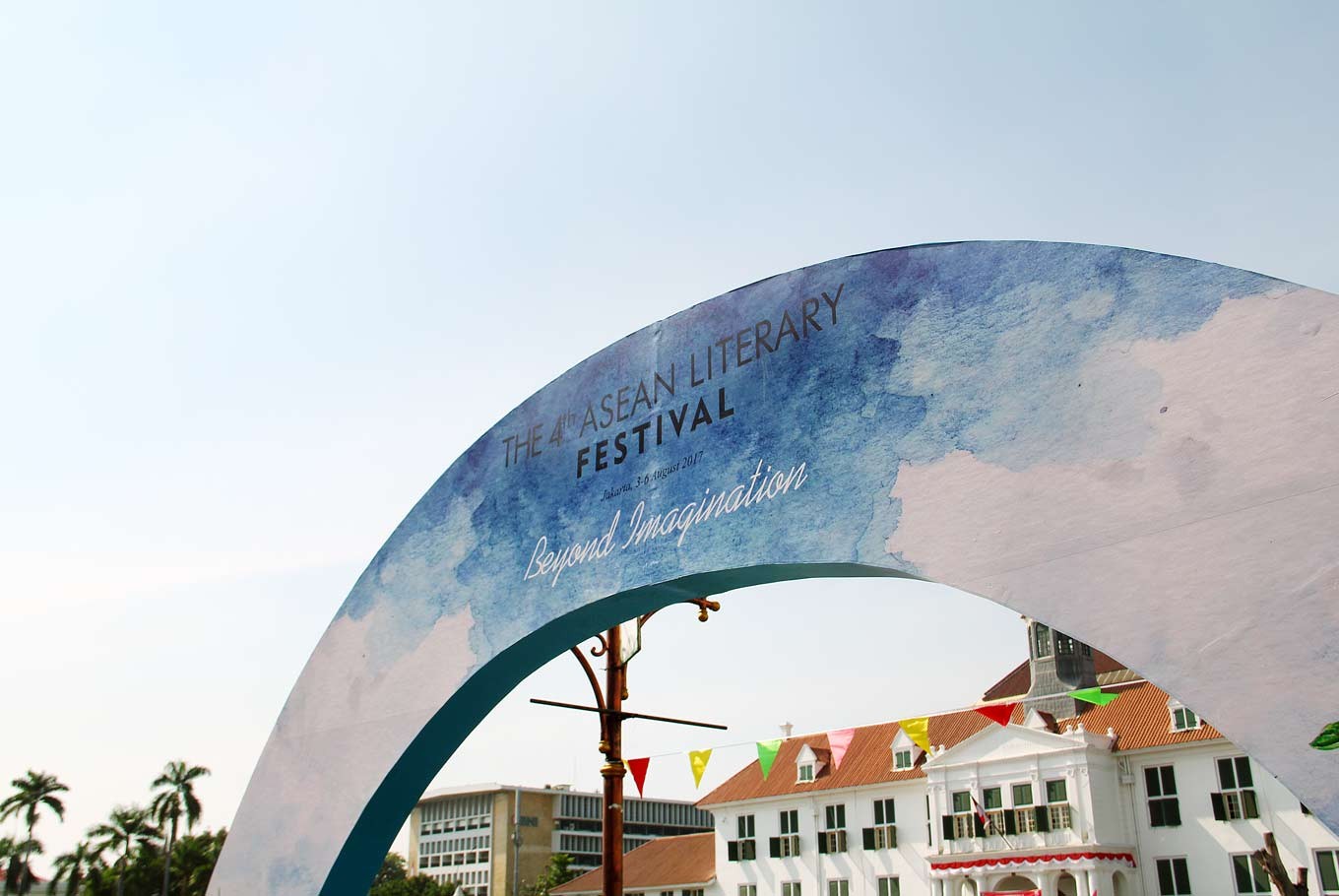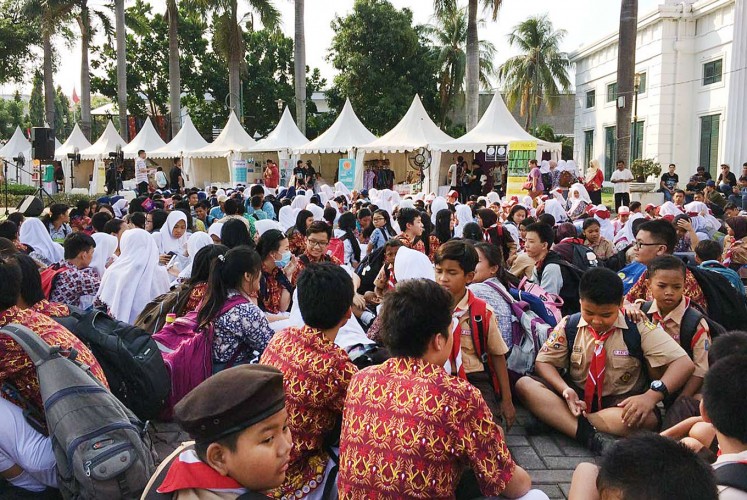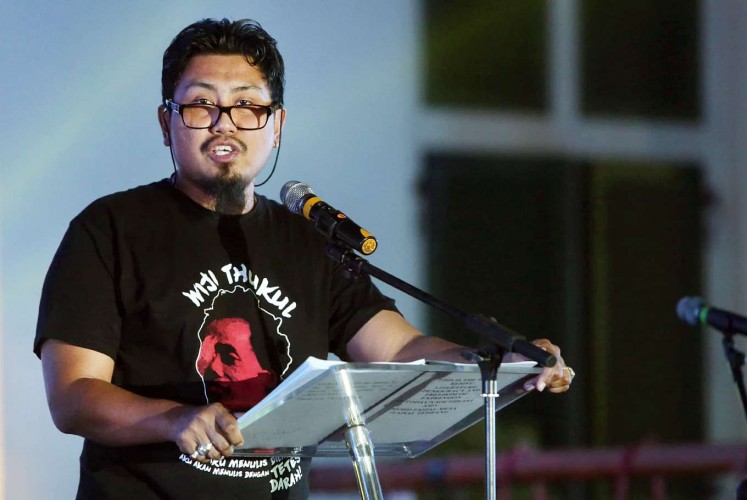Popular Reads
Top Results
Can't find what you're looking for?
View all search resultsPopular Reads
Top Results
Can't find what you're looking for?
View all search resultsASEAN Literary Festival highlights freedom of expression, inclusiveness
It’s time for courageous writers to stand tall and make a difference.
Change text size
Gift Premium Articles
to Anyone
D
uring the ASEAN Literary Festival, which took place over the weekend at West Jakarta’s famed Kota Tua heritage site, a number of talks took place on the freedom of expression in literature in countries where writing anything remotely subversive may mean the end of one’s career.
To encourage literary freedom, writers need to be assured of the power of words, whether through fictional stories or work in the media sector, in shaping society.
Many of the seminars at the festival focused on the plight of writers in surviving and navigating the Indonesian writing landscape. Writers tend to run into social barriers, such as the increasing amount of religious intolerance and heightened sensitivity, while those working in the media have largely been affected by these barriers in disseminating proper news stories.
Future writers: Children attend the 4th ASEAN Literary Festival in Kota Tua, West Jakarta. (ASEAN Literary Festival/File)
Currently working on a book titled Shoot the Messenger, veteran Australian journalist Andrew Fowler shared his experiences in working with global whistleblower organization WikiLeaks and with fellow Australian journalist Julian Assange.
In a talk at the festival on Saturday, he discussed working as a journalist, saying that, while he acknowledged that the fate of print journalism was being challenged by page view-oriented — and therefore content-jeopardizing — digital outlets, mainly from aggregators such as Facebook and Google, he remains hopeful that print journalism will continue to stay grounded, as it tends to not emphasize page views.
The most important factor of journalism is being heard, he explained, while the point of the job is to, above all, deliver truthful and accurate information. But Fowler also said that it did not hurt to have slight sensationalist tendencies to attract readers or make stories engaging.
“In the end, you can’t lecture your audience. You need to entertain. But don’t let that be the main point of your journalism,” said Fowler, a correspondent for Australian Broadcasting Corporation investigative journalism television program Four Corners.
Having recently reported on the East Timor crisis, Fowler commented on how it was fascinating to see discussions take place about the plight of writers in Indonesia in a manner that was much more open than in years past.
Malaysian writer Faisal Tehrani (JP/Wendra Ajistyatama)In another talk that highlighted the issues of literary freedom, Malaysian author Faisal Tehrani spoke of his experiences as an outspoken writer in a conservative country.
The 42-year-old Tehrani has seen six of his books be banned in Malaysia, with the most recent instance occurring in 2014, when the Malaysian Home Ministry banned the publication of his book Perempuan nan Bercinta at the request of Malaysia’s Department of Islamic Development (JAKIM). The book has feminist undertones, following a female main character who fights for women’s rights in Malaysia.
In his lecture titled “Why I Resist,” Tehrani said that progress toward human rights in his country ultimately fell in the hands of dissident writers like him.
“I write because I demand to have my rights as a writer that were taken away from me by my government, which should be the one upholding my rights,” he said in the talk.
The festival also emphasized the importance of inclusiveness in literature for all ages and groups of people, mainly as a way to foster faith in written works’ ability to make a change.
This year, the festival introduced a program called National Literature Jamboree, which involves volunteers and ASEAN literary figures who hold seminars, competitions and workshops attended by hundreds of schoolchildren, encouraging them to write.
The program’s coordinator, Aqmarina Andira, said that it was a step toward tapping into the potential of the Indonesian youth and fostering critical thinking, social awareness, empathy and creativity through writing.
The festival wrapped up on Sunday with a number of workshops and seminars — some of which involved young poets — on feminism, travel stories, politics and society.













